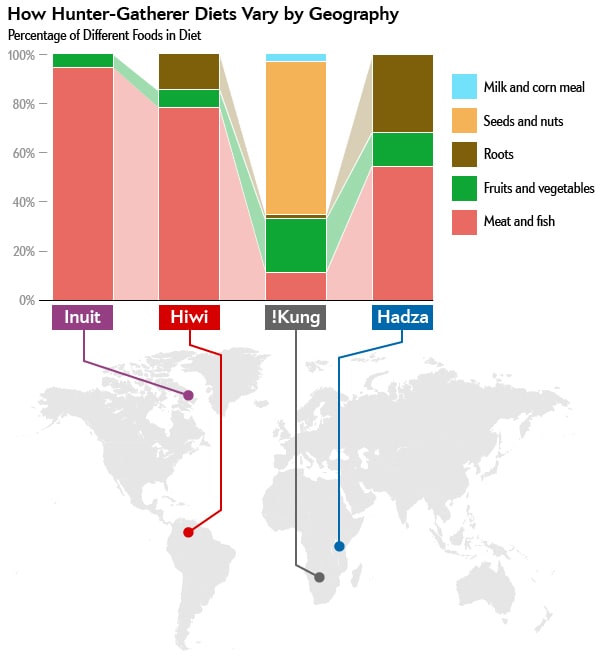 Twillight actor Kellan Lutz, 28, had to "beef up" with a high-protein diet for his title role in The Legend of Hercules. Now he's undergoing a "detox" and trying to adopt a healthier diet.
As Lutz told Billy Bush on :
Twillight actor Kellan Lutz, 28, had to "beef up" with a high-protein diet for his title role in The Legend of Hercules. Now he's undergoing a "detox" and trying to adopt a healthier diet.
As Lutz told Billy Bush on :
"It's really important to learn about your body and I've gotten some tests done just to learn about what I'm allergic to and they (medics) actually said that caffeine is not good for me and that I should be a vegan but I love meat.<��ѻ��ý>What is the "paleo diet" and is it really new? The idea that eating like our Stone Age ancestors is healthier than modern diets was first proposed 28 years ago in 1985 by Emory University researchers Drs. Melvin Konner and Stanley Boyd Eaton. The basic idea is modern humans are obese and unhealthy because what we eat today is not what we were genetically programmed to eat before the invention of agriculture about 12,000 years ago. Back in the day, prehistoric humans using stone tools ("paleoliths") hunted and gathered their food from wild sources.
"So I've been trying this new paleo diet ... and I feel healthy; I've cut out all of the sugars ... I have candy drawers all over my place, so waking up and seeing my Starbursts and Gummi Bears ... Knowing that it's not good for me though has been very easy (to give up)."
A quarter century of research since the paleolithic nutrition theory was proposed has shown that the theory is not wrong, just incomplete. Our diets and health are not strictly programmed in our genes but are also determined by:
- Epigenetic processes that occur in utero
- The intrauterine "flavorscape" and early-life dietary exposures and taste stimuli
- The gut microbiome
 Photo credit: Jen Christiansen
<��ѻ��ý>What foods are go/no-go on a paleo diet?
The foods readily available to paleolithic-era humans included muscle and organ meats, bone marrow, fish and shellfish, eggs, fruits, roots, nuts and berries but also (modern "paleo diets" seems to omit several of these delicacies). For the paleo diet, meats should be grass-fed. Eggs are allowed as well. Refined oils (such as vegetable, canola, etc.) are replaced by olive, walnut, flax seed, macadamia, avocado and coconut oils. The only beverages allowed are water, coconut water and green tea.
Photo credit: Jen Christiansen
<��ѻ��ý>What foods are go/no-go on a paleo diet?
The foods readily available to paleolithic-era humans included muscle and organ meats, bone marrow, fish and shellfish, eggs, fruits, roots, nuts and berries but also (modern "paleo diets" seems to omit several of these delicacies). For the paleo diet, meats should be grass-fed. Eggs are allowed as well. Refined oils (such as vegetable, canola, etc.) are replaced by olive, walnut, flax seed, macadamia, avocado and coconut oils. The only beverages allowed are water, coconut water and green tea.
What you're not allowed to consume on a paleo diet are milk products, grains (including whole grains), legumes (including peanuts), sugar, salt and processed foods. Honey is allowed on an occasional basis. Below is a comparison of the well-known Mediterranean diet (below left) and the Paleo diet (below right).
 <��ѻ��ý>
<��ѻ��ý style="text-align: left;">What are the benefits and risks?
A number of studies have shown that paleolithic-type diets are safe and are effective in improving disease risk factors in both healthy subjects and in patients with type 2 diabetes or ischemic heart disease. Paleo diets also have the desirable characteristic that people find them more satiating per calorie than other diets, such as the Mediterranean diet. Although more research is needed, paleo-type diets may be useful in preventing stroke, coronary heart disease, type 2 diabetes and cancer.
<��ѻ��ý>
<��ѻ��ý style="text-align: left;">What are the benefits and risks?
A number of studies have shown that paleolithic-type diets are safe and are effective in improving disease risk factors in both healthy subjects and in patients with type 2 diabetes or ischemic heart disease. Paleo diets also have the desirable characteristic that people find them more satiating per calorie than other diets, such as the Mediterranean diet. Although more research is needed, paleo-type diets may be useful in preventing stroke, coronary heart disease, type 2 diabetes and cancer.
Our annotated bibliography for this article is in this . The following related stories may also be of interest.
